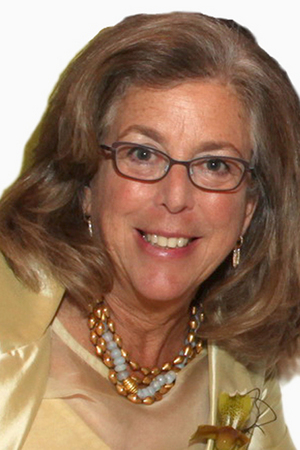
By Andrew Cohen
Arlene Mayerson ’74, who teaches disability rights law at Berkeley Law, is the lead attorney on a federal lawsuit that charges Netflix with violating the American Disabilities Act (ADA) by failing to provide captioning on its streaming video content.
Filed on behalf of the National Association of the Deaf (NAD), the suit calls for Netflix to offer closed captioning for its “Watch Instantly” movies and television streamed online. Mayerson, directing attorney of the Disability Rights Education and Defense Fund (DREDF) in Berkeley, is being assisted by DREDF attorney and Skadden Fellow Shira Wakschlag ’10 and intern Katy Merk ’13.
Through letters, petitions, social media outlets, and blogs, the deaf and hard-of-hearing community has continually expressed its concerns about Netflix, which has more than 60 percent of the streamed video services market share.
“Now that so much entertainment is moving to the Internet, it follows that the estimated 36 million people who are deaf or hard-of-hearing should have access to this content,” Mayerson said. “Netflix is the biggest streamer in the country. We’ve raised this issue for quite awhile, but haven’t been able to persuade Netflix to deliver equal access.”
At issue is whether content supplied by a commercial entity doing business on the Internet is covered by the ADA, which requires that all “places of entertainment” provide “full and equal enjoyment” for people with disabilities. The plaintiffs are asking the court to hold Netflix’s inaction as an ADA violation, and to force the company to provide closed captions on all of its streaming content.
“The Netflix website is a major place of entertainment with about 23 million subscribers,” Mayerson said. She added that “captions are like ramps for people who use wheelchairs,” and that “this website is absolutely a place of public accommodation and a place of entertainment.”
Plaintiffs other than NAD include the Western Massachusetts Association of the Deaf and Hearing-Impaired, and a deaf Massachusetts resident. They are represented by DREDF, the Oakland firm Lewis, Feinberg, Lee, Renaker & Jackson, and the Boston firm Sugarman, Rogers, Barshak & Cohen.
DREDF intends to follow up with other companies that provide streaming content, such as Comcast and Hulu.
In a company blog post from February, Neil Hunt, the company’s chief product officer, said 30 percent of streaming content on Netflix had subtitles. He added that “we expect to get to 80 percent viewing coverage by the end of 2011.”
While Netflix has provided more captioning since receiving a demand letter from DREDF earlier this year, Mayerson views the response as insufficient.
“Like many entities, Netflix seems surprised that a disabled community isn’t overflowing with gratitude for small, incomplete steps a company takes on its behalf,” she said. “Deaf people want to watch what everyone else can, not just a percentage of that. They’re not clapping and bowing because they have a few more options than before but still considerably less than everyone else.”
Mayerson has taught disability rights law at Berkeley Law in 18 of the past 20 years, and will offer the course again in Fall 2012. It explores substantive areas of employment, housing, education (including special education), and access rights, addresses recent U.S. Supreme Court decisions, and teaches practical skills for litigating civil rights cases.
“Because I’ve done this for so long, I’m able to bring in colleagues who are at the top of their field in every major area of disability rights,” she said. “Whatever the students are learning about, they’re hearing it from the Bay Area’s best.”